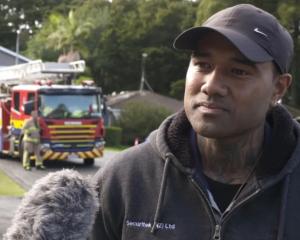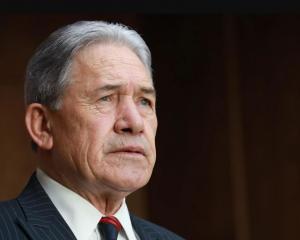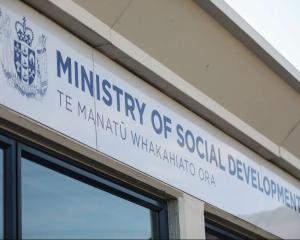An elderly man had to drag his sick adult son down a flight of stairs and into the car after ambulance staff left them to make their own way to the doctor.
Fred Gunst, 79, has looked after his 47-year-old son, Ken, for most of his life and knew something was wrong when he got out of bed one morning to find him in exactly the same position he had left him in the night before.
Ken has lived with the effects of a cancerous brain tumour since he was 7 years old and struggled with balance, co-ordination, speech and memory.
Mr Gunst went out on the evening of May 7 and got back to find Ken in the same chair he was in when he left.
Mr Gunst thought nothing of it until he got up at 6.45am the next day and found him in the same position.
"I knew something drastic had happened but I didn't know what to do."
Mr Gunst called his 76-year-old partner, a former nurse, and an ambulance.
Paramedics checked Ken thoroughly, mainly for signs of a stroke, they then left Mr Gunst and his partner to deal with Ken.
"They wrote out a form and left him with me and said, 'Take him to the doctor'. We had to man-handle him out of the house, down five stairs to the car. It wasn't an easy task because we had to toilet and dress him before we went," he said. "He's a big guy, about 85 to 90kg."
The decision not to take Ken straight to hospital was disappointing, he said.
Mr Gunst said he did not specifically ask the paramedics to take Ken to hospital but he expected they would have offered to transport him.
"Perhaps I should have been more forthright but that's their job. They know what they're doing."
When they finally got to the doctor's surgery the doctor took a quick look at Ken and told them to take him straight to hospital. He was immediately admitted to the emergency department.
Doctors found the tube that drained cerebrospinal fluid from his head to his pleural cavity was blocked and took him to Waikato Hospital for surgery the next morning.
St John Bay Of Plenty district operations manager Jeremy Gooders would not comment on the specific case citing privacy but said staff always did a detailed assessment of the patient when they arrived at a job.
The course of action was always discussed and agreed on by the patient and their family, he said.
"Some people are advised to see their GP, we have those conversations about are they able to get there.
"Sometimes we will take people to medical centres if required."
In situations where patients with known medical conditions did not have life-threatening symptoms, paramedics aimed to have them seen by those already involved in their treatment, Mr Gooders said.
- By Amy McGillivray of the Bay of Plenty Times












